Have you ever met with a concerning message on your dashboard- “Parking brake malfunction detected. Please seek immediate inspection and repair.” This alarming notification isn’t just a minor inconvenience.
It’s a critical warning that requires immediate attention. Addressing it is essential to ensure your safety and that of others on the road.
Parking Brake Malfunction occurs when there is a fault in the parking brake system, preventing it from engaging or disengaging properly. This can lead to difficulties securing the vehicle in place or releasing the brake, posing safety risks and requiring immediate attention to prevent accidents or damage.
This blog post will delve into the common causes of parking brake malfunctions, the potential risks of ignoring this warning, and some steps to resolve the issue. Your safety on the road is paramount, so let’s get to the bottom of this parking brake concern together.
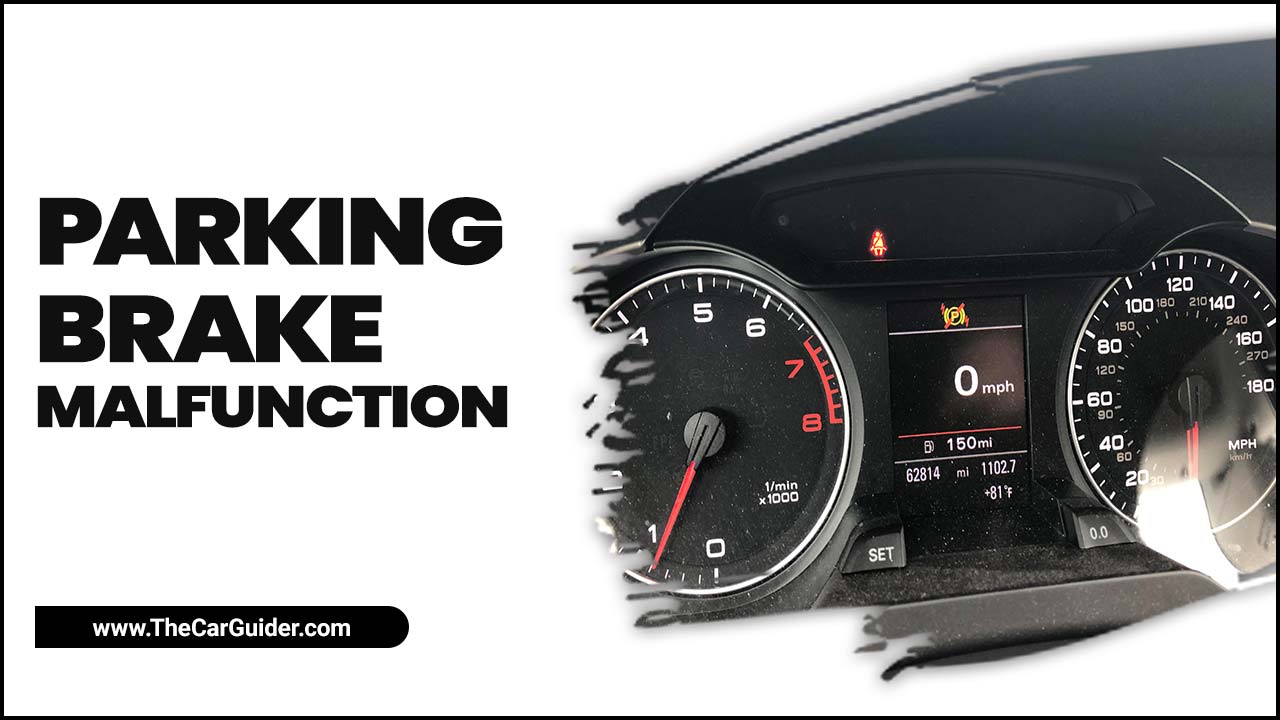
Key Takeaways:
- A parking brake malfunction can prevent proper engagement or disengagement, posing safety risks. Common causes include worn brake pads, broken cables, faulty actuators, and debris.
- Regular maintenance, such as inspecting brake pads and lubricating cables, can prevent issues. Regularly testing the parking brake on inclines ensures its effectiveness for safety.
- If a malfunction occurs, check fluid levels, inspect cables, and test the parking brake system. Timely repair is crucial to avoid accidents and prevent costly damage to other vehicle parts.
Function Of Parking Brake
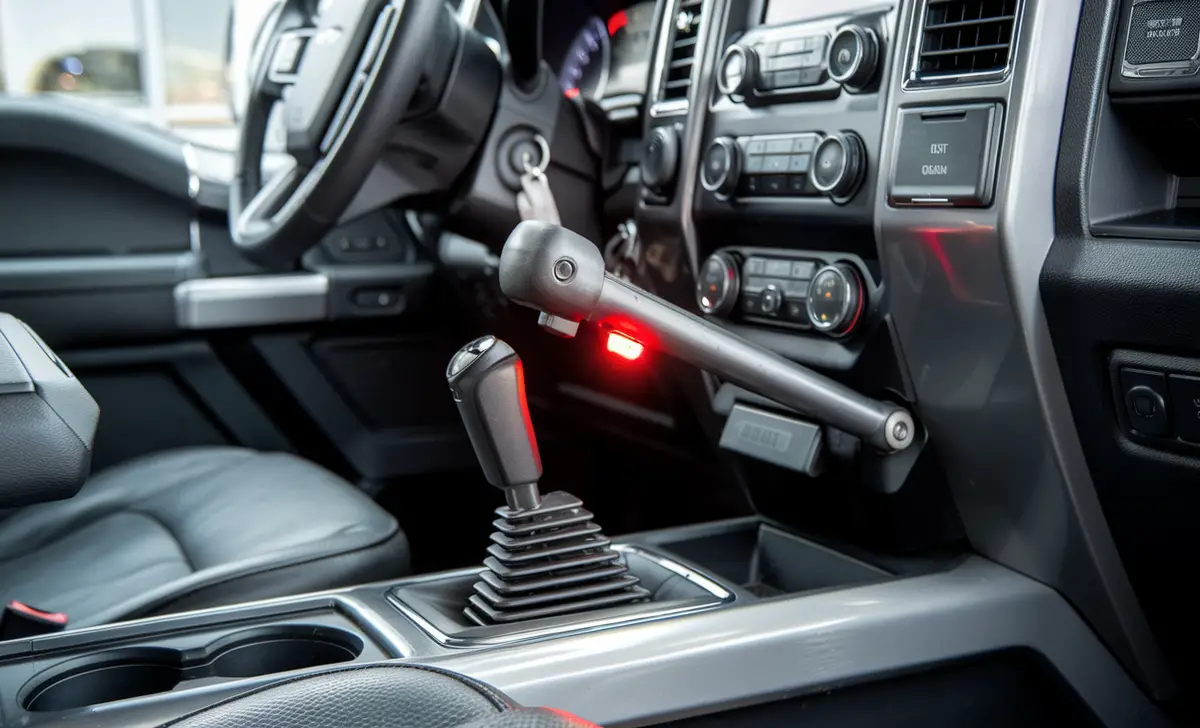
Parking brake failure can result from issues with the actuator, such as motor failure or electronic malfunctions. 70% of parking brake malfunctions are linked to issues like worn cables or brake pads.
The parking brake, also known as the emergency brake or handbrake, is a secondary braking system in vehicles. Its main function is to prevent the vehicle from moving when parked by mechanically locking the rear wheels.
Main Function Of The Parking Brake:
- It prevents movement by locking the rear wheels on slopes or uneven terrain.
- It acts as a backup system in case the primary braking system fails.
- Secures the vehicle in place during parking.
- Facilitates safer vehicle inspections or repairs by stabilizing the car.
Why Does Parking Brake Malfunction Happen?
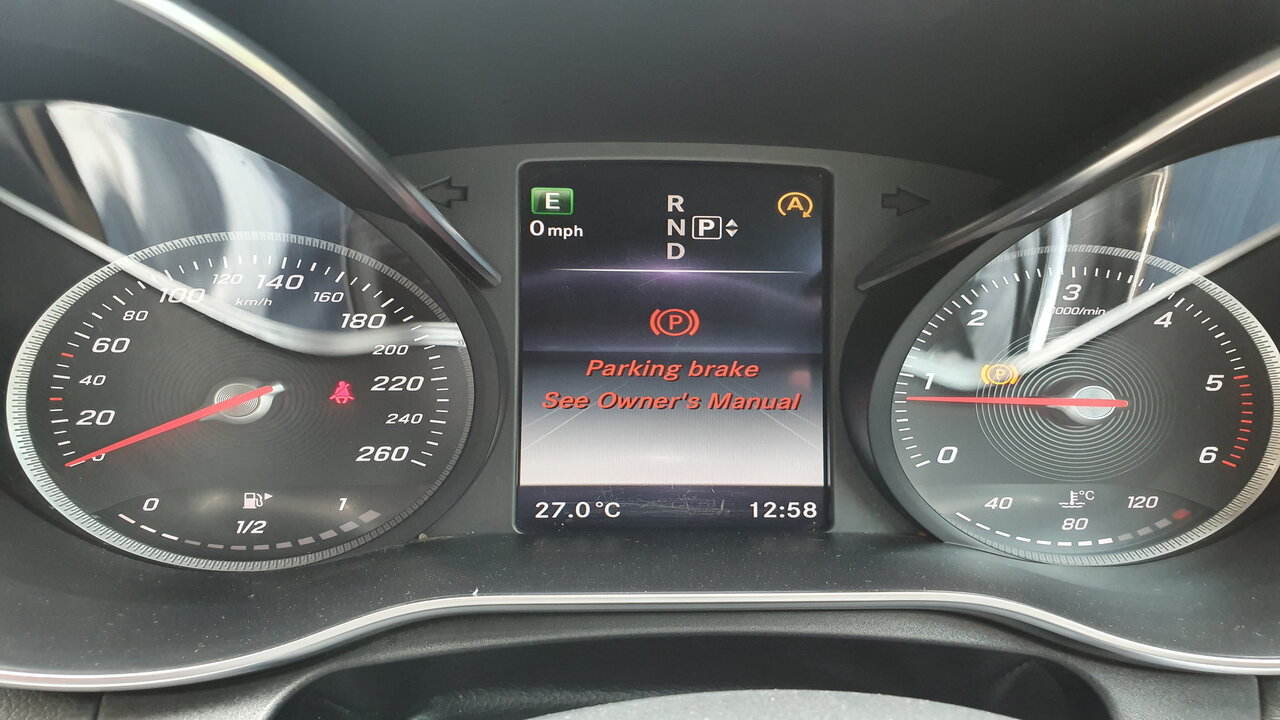
- Worn brake pads or shoes
- Broken or seized parking brake cables
- Faulty parking brake actuator
- Malfunctioning parking brake switch or sensor
- Corrosion or debris accumulation in the brake system
If you get a warning like “Parking brake malfunction service now”, then understanding the operation is vital. Like the parking brake system, recognizing warning signs, such as unusual noises or difficulty engaging the brake, can help prevent accidents and ensure the safety of your vehicle while parked.
7 Steps To Fix Parking Brake Malfunctions
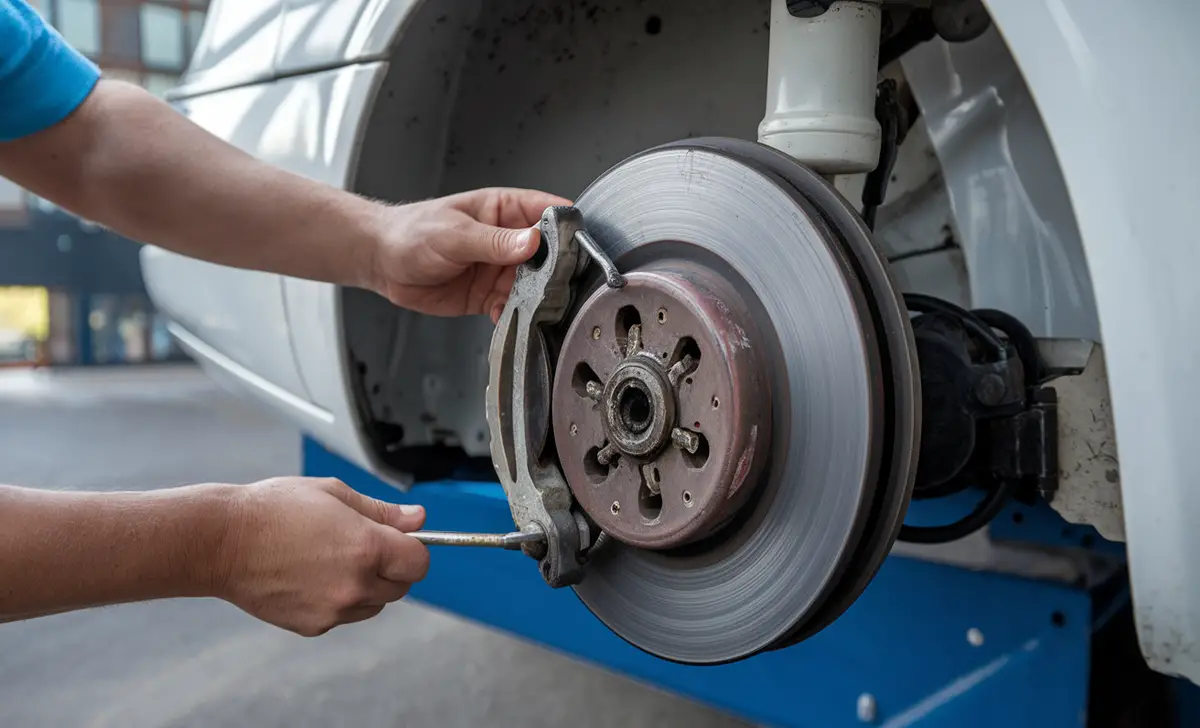
80% of drivers use their parking brake daily, primarily on inclines. Experiencing malfunction can be concerning, but resolving it is crucial for vehicle safety. One common cause of parking brake issues is worn rear brake pads, which can affect the parking brake’s effectiveness. 1 in 10 vehicles experiences parking brake-related issues due to wear or neglect.
Problems with the parking brake switch or caliper may also lead to malfunctions. To fix parking brake malfunctions, inspect the rear brake pads for wear and replace them if necessary.
Step 1: Identify The Problem
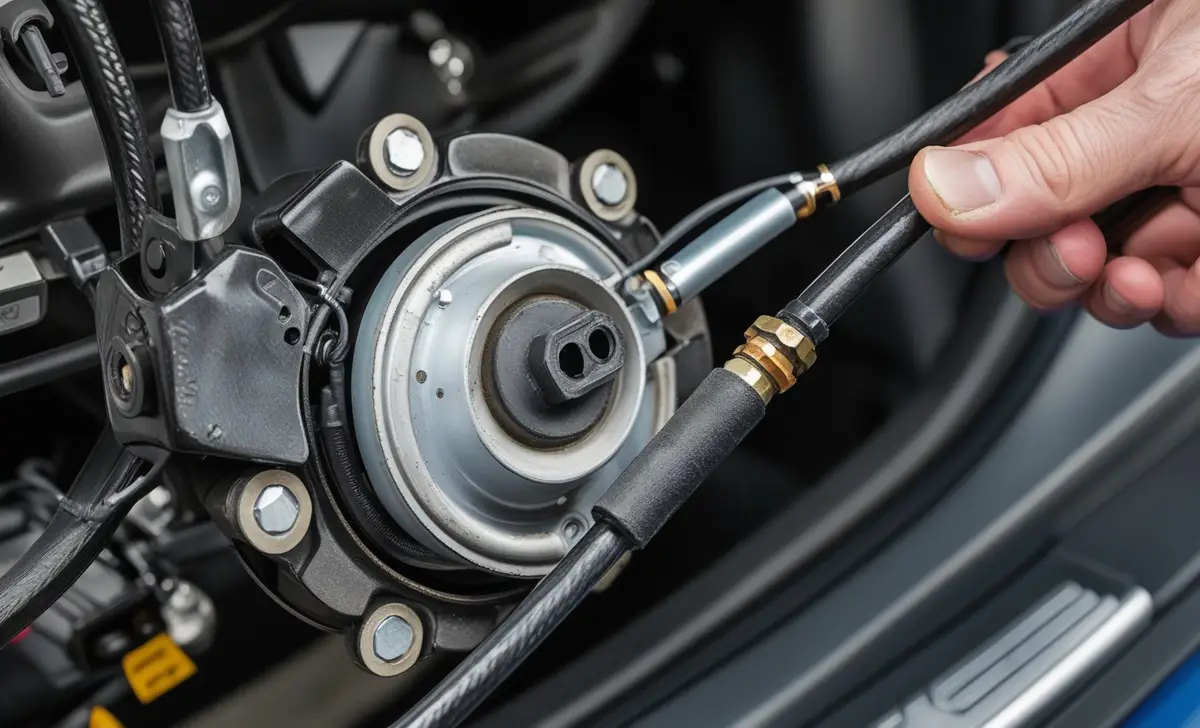
When faced with a parking brake malfunction, the first step is to identify the underlying issue to initiate proper troubleshooting and repairs. Potential causes of parking brake malfunctions in vehicles, such as those manufactured by Audi AG, may include problems with the parking brake cable, parking brake module, or brake fluid levels.
Key Areas To Check:
- Parking Brake Cable: Inspect the condition of the parking brake cable for any signs of damage, corrosion, or wear.
- Parking Brake Module: Check the parking brake module for faults or malfunctions that may affect its operation.
- Brake Fluid: Ensure adequate brake fluid levels, as low levels can affect the parking brake system’s performance.
Step 2: Check The Fluid Level

To check the fluid level, engage in maintenance mode to ensure safety. The electric motor controls the parking brake system, so ensure it functions properly.
Additionally, check the battery to ensure it has enough power to operate the braking system effectively. Addressing these components, you can troubleshoot the issue and potentially resolve it.
Step 3: Inspect The Brake Pads
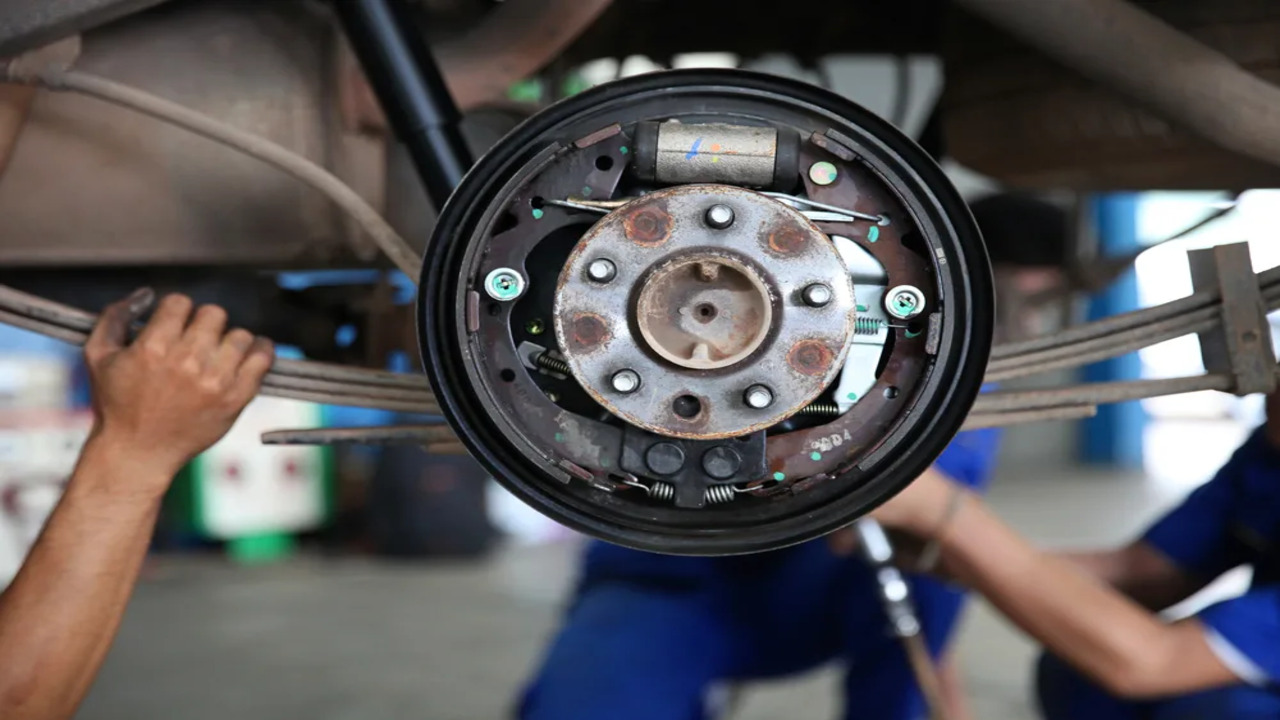
If you encounter a “Parking Brake Malfunction” warning, inspecting the brake pads is crucial. The parking brake system typically engages the rear wheels, so checking the condition of the brake pads in this area is essential. Look for signs of wear, such as thinning or unevenness, and ensure they are within the manufacturer’s recommended thickness.
If the pads are worn out or damaged, it may be necessary to schedule a brake job, including replacing the pads and possibly resurfacing or replacing the rotors. For accurate diagnosis and repair, consider consulting a dealership or qualified mechanic.
Step 4: Check The Brake Pedal

Inspect the parking brake pedal for any signs of damage or irregularities. Ensure that the pedal moves freely and smoothly without any resistance. If the pedal feels loose or does not engage properly, it could indicate a parking brake malfunction.
In such cases, it’s advisable to seek assistance from a qualified mechanic or visit a dealer for further inspection. They can diagnose the issue, including potential problems with the electrical connection or the need for service mode activation, and provide the necessary repairs to ensure the parking brake functions correctly.
Step 5: Adjust The Parking Brake
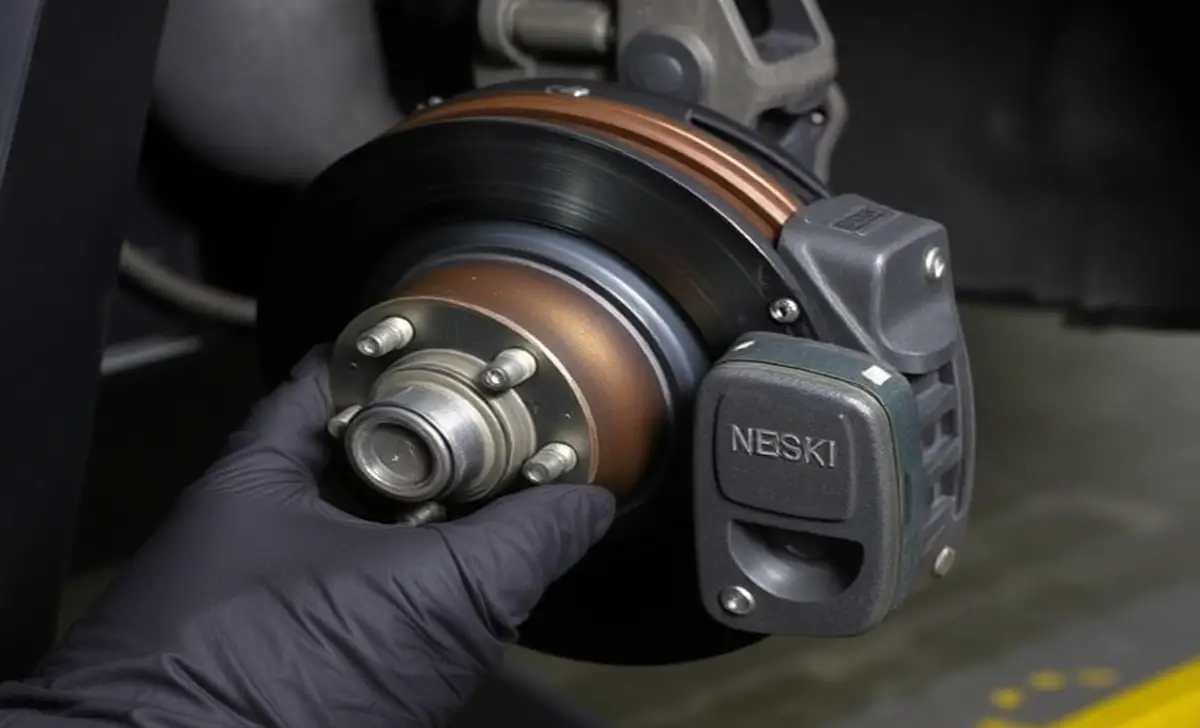
To address a parking brake malfunction, the next step is adjusting the parking brake. Begin by inspecting the parking brake control module for any faults or malfunctions. Next, check for any obstructions, such as snow or debris, that may prevent proper parking braking engagement.
If the issue persists, inspecting the calliper piston for any damage or malfunction affecting the parking brake’s operation may be necessary. Adjusting the parking brake according to manufacturer specifications can help resolve the malfunction and ensure the safety of your vehicle.
Step 6: Replace The Parking Brake Cables
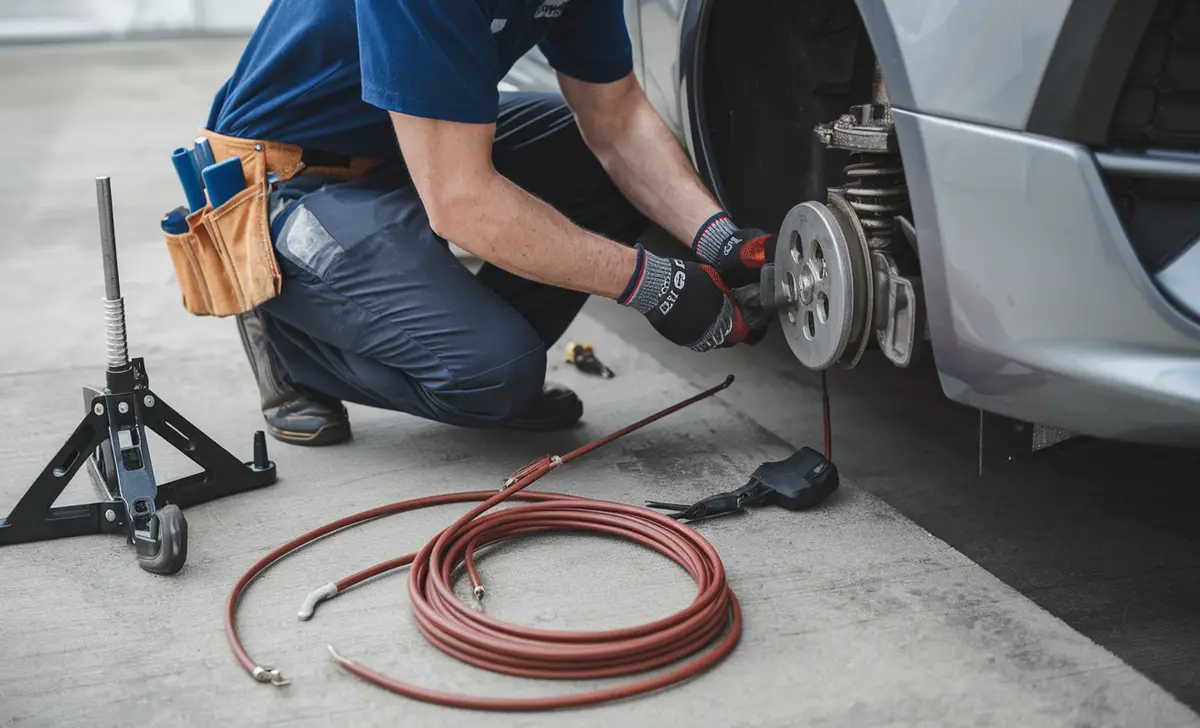
Locate the cables underneath the vehicle near the rear wheels to replace the parking brake cables. Use a jack to lift the vehicle and secure it with jack stands for safety. Next, disconnect the old cables from the brake calipers and the parking brake lever.
Install the new cables, ensuring they are routed correctly and securely attached at both ends. Test the parking brake to ensure proper functionality before lowering the vehicle. If unsure about the replacement process, refer to the vehicle’s service manual or seek professional assistance.
Step 7: Test The Parking Brake
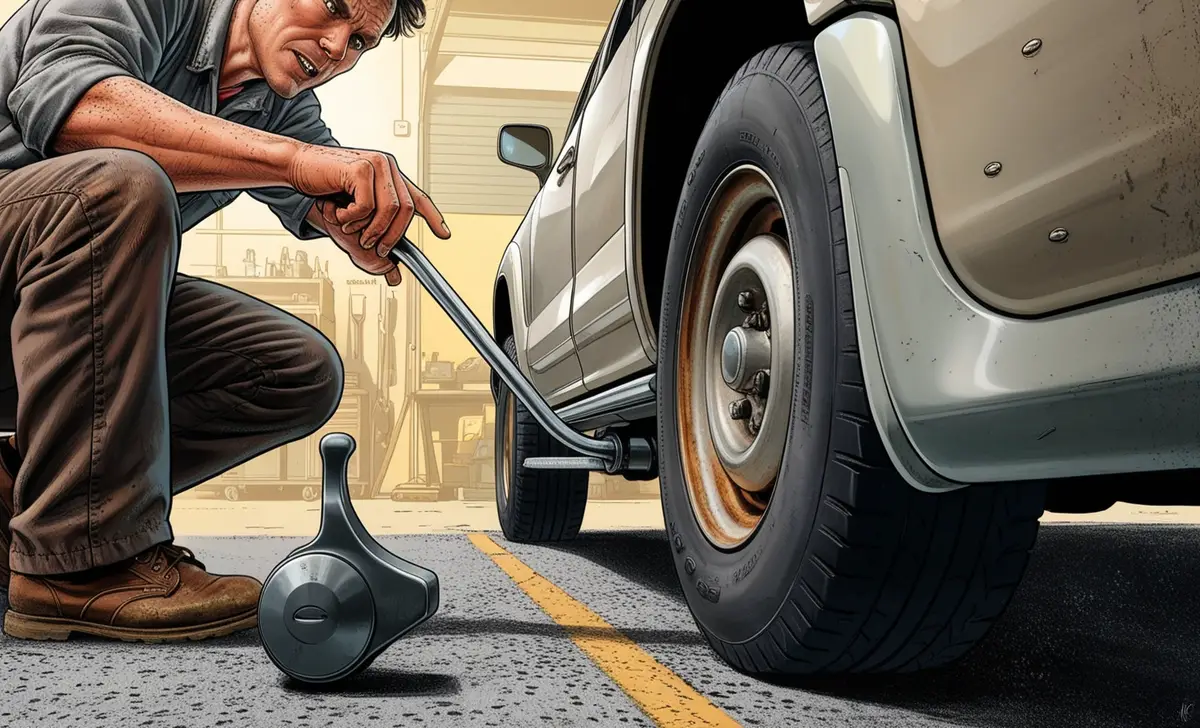
Testing the parking brake is crucial for ensuring the safety of your vehicle. If you suspect a malfunction, follow these steps to diagnose the issue. First, engage the parking brake while parked on a flat surface. Listen for any unusual noises or vibrations. Next, try to move the vehicle by gently accelerating to test if the brake is holding.
If the vehicle moves, the parking brake may need adjustment or repair. Also, check the brake fluid level and pads for any signs of wear. Regular maintenance and prompt attention to issues can prevent accidents and costly repairs. Remember, the parking brake is vital for your safety on the road.
Tips For Ensuring The Proper Functioning Of Your Parking Brake System
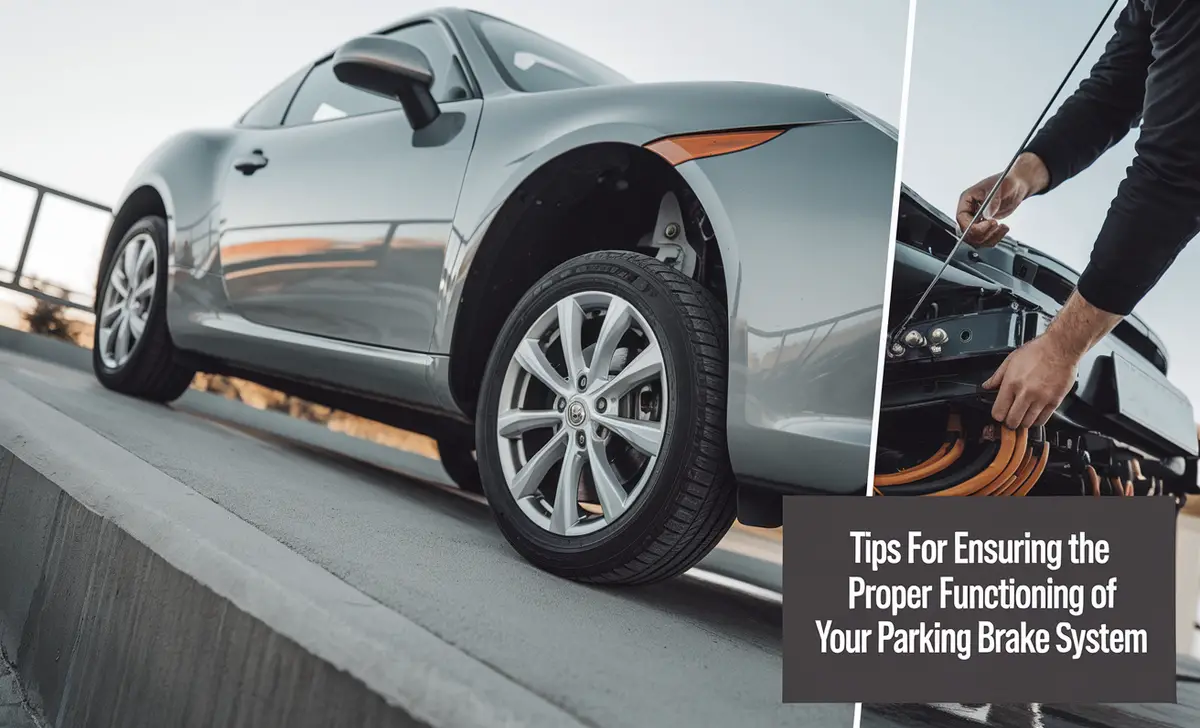
- Regularly inspect brake pads and shoes for wear
- Check and lubricate parking brake cables
- Schedule routine maintenance and inspections
- Address any warning lights or unusual noises promptly
Experiencing a parking brake malfunction can be both inconvenient and potentially hazardous. Regular maintenance and periodic checks are essential to ensure the proper functioning of your parking brake system. Start by inspecting the brake cables for any wear or damage and ensure they are properly tensioned.
Additionally, test the parking brake regularly by engaging it while parked on a slight incline and ensuring the vehicle remains stationary. If you notice any abnormalities, such as unusual noises or difficulty engaging the brake, have it inspected by a qualified mechanic immediately. Prompt attention to any issues can prevent more significant problems and ensure the safety of your vehicle while parked.
Conclusion
Taking immediate action to address a parking brake malfunction is crucial for your safety and the safety of others on the road. Ignoring the signs can lead to accidents and costly repairs. Following the 7 steps mentioned earlier, you can diagnose and fix common parking brake malfunctions.
However, if you are unsure or uncomfortable with performing these tasks, it is recommended to seek professional help. Regular maintenance and inspections of your parking brake system can help prevent malfunctions in the future. Remember, a properly functioning parking brake is essential to your vehicle’s safety system, so don’t overlook its importance. Drive safely!
Frequently Asked Questions
1.How Do You Fix A Parking Brake Fault?
Ans: To fix a parking brake fault, identify the root cause. Worn cables, faulty callipers, or air in the brake lines are common causes. Fixing the issue may involve replacing parts or adjusting the cable tension. For safety reasons, it’s recommended to have a professional mechanic diagnose and fix parking brake faults.
2.Can You Drive With Brake Malfunction?
Ans: Driving with a brake malfunction is not recommended as it can be dangerous and increase the risk of accidents. If you suspect a brake malfunction, it’s best to have your vehicle towed or repaired immediately. Neglecting to fix a brake malfunction can also cause expensive damage to other parts of your vehicle.
3.How Do You Reset The Electronic Parking Brake Malfunction?
Ans: Resetting an electronic parking brake malfunction varies depending on the vehicle’s make and model. Refer to your car’s manual or consult a professional mechanic for specific instructions. You’ll need to press and hold the brake pedal while engaging and disengaging the parking brake multiple times. If the issue persists, seeking a professional diagnosis and repair is best.
4.Can You Drive With Parking Brake Fault?
Ans: Driving with a parking brake fault is not recommended. It can cause the vehicle to roll away or lose control, potentially causing accidents. Moreover, driving with a malfunctioning parking brake can damage the braking system and other vehicle components. Be sure to fix it promptly for your safety and that of others on the road.
5.Can You Adjust An Electronic Parking Brake?
Ans: Adjusting an electronic parking brake is possible, but having a professional mechanic handle it is best. Incorrect adjustments can lead to system damage or brake failure. Regular maintenance and inspections can help prevent malfunctions.
6.What Are The Costs Associated With Repairing A Parking Brake Malfunction?
Ans: The costs of repairing a parking brake malfunction can vary depending on the extent of the issue. Simple fixes like adjusting the cable may cost less, while replacing the entire parking brake assembly or addressing related brake system problems could be more expensive.
7.How Do You Know If Your Parking Brake Cable Is Malfunctioning?
Ans: Signs of a malfunctioning parking brake cable include difficulty engaging or disengaging the brake, a loose or overly tight parking brake lever or pedal, unusual noises when applying the brake, or the vehicle rolling despite the brake being engaged.
8.What Are The Psychological Effects Of Experiencing A Parking Brake Malfunction?
Ans: Experiencing a parking brake malfunction can induce stress, anxiety, and a sense of vulnerability while driving or parking. It may erode confidence in the vehicle’s safety and reliability, leading to heightened caution or avoidance of certain driving situations.
9.How Do We Fix The Electric Parking Brake Problem?
Ans: Fixing an electric parking brake problem requires diagnosing the specific issue first. This could involve troubleshooting the electronic components, checking for faulty sensors or actuators, and ensuring proper calibration. Consult a qualified mechanic or refer to the vehicle’s manual for guidance on resolving electric parking brake issues.
10.What Does A Parking Brake Malfunction Mean?
Ans: A parking brake malfunction typically means that the parking brake system is not functioning correctly, which could involve issues like a brake issue with the rear calliper or a blown fuse in the electrical system.
This malfunction can prevent the brake from fully engaging or disengaging, leading to potential damage and safety risks if not addressed. It is important to have the root cause of the problem diagnosed by a professional.